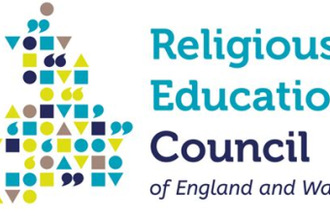Catholic educators comment on Curriculum and Assessment Review

Photo by Kenny Eliason on Unsplash
Source: ATCRE, CES
Catholic educators have welcomed much of the Curriculum and Assessment Review, but have some concerns.
Speaking on behalf of the Association of Teachers of Catholic Religious Education Executive, ATCRE Co-chair Dave Legrand said: "We find a number of the recommendations in the report to be positive steps and feel we can support these. For example, we are delighted with the ambition to reduce exam time across GCSE subjects given the positive impact this will have on the workload and wellbeing of both teachers and students.
We are delighted to hear about the removal of the EBacc which treated RE unfavourably and unfairly. We would like to call on the government to go even further and not implement the 'Academic Breadth' aspect of the Progress 8 measure. We feel that, in real terms, this is not so much a removal of the EBacc as it is a change in name. We worry that it might not make much practical difference to the decisions made by Headteachers about the place of RE in the curriculum, especially at Key Stage 4.
We are in favour of high-quality RE that, amongst other things, prepares students for life in modern Britain. Therefore, we applaud the spirit behind the review's desire to ensure that the quality of RE is as strong as it can be across all types of schools. We will always support clear and consistent teaching of Catholicism and its practices in schools which are not Catholic, alongside excellent teaching about a range of religions and worldviews.
We feel that the spirit behind the idea of bringing stakeholders together to seek a common good for RE is an example of a dialogical approach to faith much encouraged by Pope Francis. We commend the report for this recommendation.
We do, however, recognise that RE in Catholic schools and colleges has a unique place and role as the 'core of the core curriculum'. This means that we would want to see it continue to be protected by retaining its current legal position, and for it to remain under the authority of the Bishop's Conference of England and Wales.
We would also like to highlight that as RE is the 'core of the core curriculum' we cannot support the recommendation to remove the entitlement of students in school sixth forms (Key Stage 5) to receive RE. We call on the government not to implement this recommendation.
We echo the comments made in the Catholic Education Service (CES) press release that, given it has a minimum of 10% curriculum time from Key Stage 1-4 in schools, the teaching of religions and worldviews other than Christianity is already given time and importance in the current Catholic RE curriculum, and that the time dedicated to teaching religions and worldviews other than Christianity is often greater than that in non-faith schools.
Finally, following our recent press release on the matter, we would like to reiterate our disappointment at the removal of the training bursary for RE. Given the report's emphasis on the importance of quality RE, we feel it is a baffling oversight to remove one of the mechanisms to support the training of teachers who could deliver this subject with passion and expertise. We once again call on the government to urgently rethink their position on this area."
Paul Barber, Director of the Catholic Education Service, expressed some reservations, saying: "Religious Education (RE) has always been compulsory in all schools, and in Catholic schools 10% of curriculum time is dedicated to it. This means alongside Catholic Christianity other religions like Judaism, Islam, Sikhism and world views are given more study time than in most non-denominational RE, contributing to community cohesion. A national curriculum approach which threatens the integrity of Catholic RE is therefore concerning at a time of heightened community tensions, as is removing the requirement to teach RE beyond age 16. Any future curriculum must preserve the long-standing, hard-won freedoms secured for Catholic RE.
"We recognise that the high quality of Catholic RE isn't always replicated in non-denominational RE. We welcome the scrapping of the EBacc which reduced the study of RE in many schools, and seek to support the wider school sector in matching our robust approach."


















